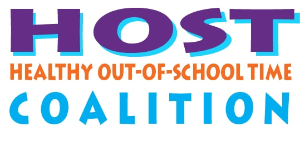HOST Members Respond to New Child Nutrition Bill
 The Senate Agriculture, Nutrition, and Forestry Committee on January 20 unanimously approved the bipartisan Improving Child Nutrition Integrity and Access Act of 2016, which would provide a five-year reauthorization of the Child Nutrition Act and govern the national school lunch and breakfast programs. It now heads to the Senate floor. Several HOST members have offered their insights on the bill.
The Senate Agriculture, Nutrition, and Forestry Committee on January 20 unanimously approved the bipartisan Improving Child Nutrition Integrity and Access Act of 2016, which would provide a five-year reauthorization of the Child Nutrition Act and govern the national school lunch and breakfast programs. It now heads to the Senate floor. Several HOST members have offered their insights on the bill.
- The Pew Charitable Trusts offer details of the Act, noting that it "would expand support for healthy meals and snacks in schools, including the establishment of loan assistance and grant programs to help school districts upgrade their food service facilities and augment staff training opportunities." At the same time, it "would instruct the U.S. Department of Agriculture to revise nutrition standards for school lunches to allow schools to occasionally serve products made with less than 50 percent whole grain and to extend until 2019, instead of 2017, a deadline for schools to reduce meals’ average weekly sodium."
- The Afterschool Alliance looks at what the bill does from an afterschool and summer learning perspective, including streamlining summer and afterschool meal coordination to allow afterschool meal sites to operate year-round through the Summer Food Service Program, should they wish.
- No Kid Hungry gives us "Five Things to Know" about the Act, and says it "contains the strongest improvements to how we feed kids during the summer in more than 40 years."
- Mission Readiness applauds the bill and its healthy school meal standards as a way to address "the obesity epidemic" in our country and its impact on our military.
- The National Recreation and Park Association says the bill is "far from perfect, but no bill ever is. It contains ideas that are both questionable and commendable when it comes to keeping children healthy and fed." They praise the way it streamlines applications for afterschool and summer food programs and maintains daily fruit and vegetable requirements, but criticize the increased verification requirements on low-income kids applying for school meals, as well as the reduced whole grains required and the delay in the scheduled reduction in the amount of sodium.
- The Food Research and Action Center supports the bill, but questions "the inclusion of a verification framework that could threaten to keep significant numbers of eligible children from receiving the healthy school meals they need for their growth and development."
